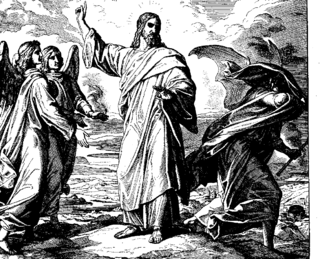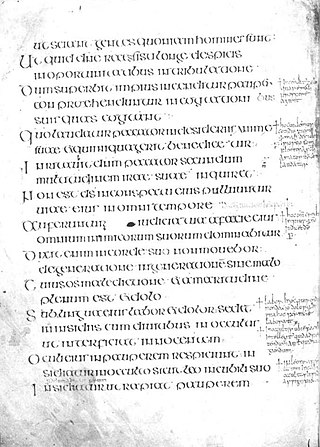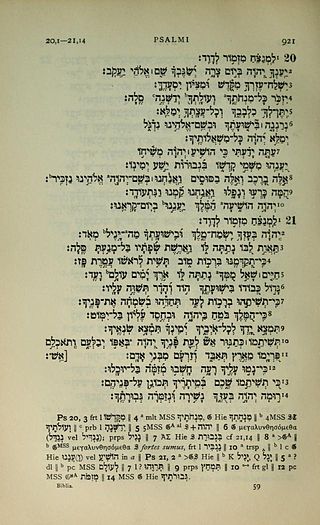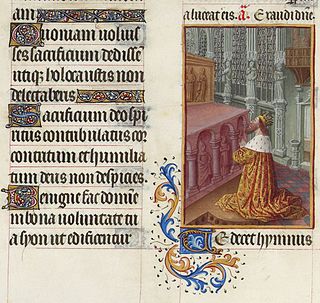
"Thanatopsis" is an early poem by the American poet William Cullen Bryant. Meaning 'a consideration of death', the word is derived from the Greek 'thanatos' (death) and 'opsis' (view, sight). [1]

"Thanatopsis" is an early poem by the American poet William Cullen Bryant. Meaning 'a consideration of death', the word is derived from the Greek 'thanatos' (death) and 'opsis' (view, sight). [1]
William Cullen Bryant was born in 1794 in Cummington, Massachusetts. Bryant grew up in a Puritan home with his father, Peter Bryant, a prominent doctor who provided him with much of his early education. [2] In his early life Bryant would spend a great deal of time in the woods surrounding his family's New England home, and read of the extensive personal library his father had. [3] Bryant's first published poem was "The Embargo; or, Sketches of the Times", a satirical work concerning Thomas Jefferson's Embargo Act of 1807. It was released in a Boston newspaper in 1808. In 1810 Bryant was forced to leave Williams College for lack of money. Instead of a formal education, he started studying law, and began learning an eclectic mix of poetry, such as the works of Isaac Watts and Henry Kirke White, and verses like William Cowper's The Task and Edmund Spenser's The Faerie Queene . [4]
When and where Bryant wrote "Thanatopsis" is unclear, and Bryant himself could not remember when he wrote the verse. [5] According to Parke Godwin, Bryant's friend, Bryant wrote the poem when he was seventeen years old in mid-1811, just after he had left Williams College. [6]
Bryant reportedly wrote his first draft of "Thanotopsis" in Flora's Glen in Williamstown. [7]
In History of American Literature, two dates are stated for the authoring of "Thanatopsis", 1811 and 1816. [8] Bryant's inspiration for "Thanatopsis" came after reading William Wordsworth's Lyrical Ballads , [9] as well as Robert Blair's "The Grave", Beilby Porteus's "Death" and Kirke White's "Time". [10] After Bryant had left Cummington to begin his law studies, his father discovered a manuscript in Bryant's desk drawer, [11] that contained "Thanatopsis" and a fragment of a poem, which would be published under the title "The Fragment", [12] and later titled "An Inscription upon the Entrance to a Wood". [6] He sent the two poems without his son's knowledge to the editors at the North American Review , where they were published in September 1817. [13] [5] The editors added an introduction to Thanatopsis in a completely different style. The part written by the author begins with "Yet a few days,". The author republished the poem in 1821 in a collection of works called Poems. He replaced the introductory section, made a few minor changes to the text and added more material after the original end of the poem, which was "and make their bed with thee!". Below is the revised version of 1821 which was retained in all later publications of the poem:
To him who in the love of Nature holds
Communion with her visible forms, she speaks
A various language; for his gayer hours
She has a voice of gladness, and a smile
And eloquence of beauty, and she glides
Into his darker musings, with a mild
And healing sympathy, that steals away
Their sharpness, ere he is aware. When thoughts
Of the last bitter hour come like a blight
Over thy spirit, and sad images
Of the stern agony, and shroud, and pall,
And breathless darkness, and the narrow house,
Make thee to shudder, and grow sick at heart;—
Go forth, under the open sky, and list
To Nature’s teachings, while from all around
Earth and her waters, and the depths of air—
Comes a still voice—Yet a few days, and thee
The all-beholding sun shall see no more
In all his course; nor yet in the cold ground,
Where thy pale form was laid, with many tears,
Nor in the embrace of ocean, shall exist
Thy image. Earth, that nourished thee, shall claim
Thy growth, to be resolved to earth again,
And, lost each human trace, surrendering up
Thine individual being, shalt thou go
To mix for ever with the elements,
To be a brother to the insensible rock
And to the sluggish clod, which the rude swain
Turns with his share, and treads upon. The oak
Shall send his roots abroad, and pierce thy mould.
Yet not to thine eternal resting-place
Shalt thou retire alone, nor couldst thou wish
Couch more magnificent. Thou shalt lie down
With patriarchs of the infant world—with kings,
The powerful of the earth—the wise, the good,
Fair forms, and hoary seers of ages past,
All in one mighty sepulchre. The hills
Rock-ribbed and ancient as the sun,—the vales
Stretching in pensive quietness between;
The venerable woods—rivers that move
In majesty, and the complaining brooks
That make the meadows green; and, poured round all,
Old Ocean’s gray and melancholy waste,—
Are but the solemn decorations all
Of the great tomb of man. The golden sun,
The planets, all the infinite host of heaven,
Are shining on the sad abodes of death,
Through the still lapse of ages. All that tread
The globe are but a handful to the tribes
That slumber in its bosom.—Take the wings
Of morning, pierce the Barcan wilderness,
Or lose thyself in the continuous woods
Where rolls the Oregon, and hears no sound,
Save his own dashings—yet the dead are there:
And millions in those solitudes, since first
The flight of years began, have laid them down
In their last sleep—the dead reign there alone.
So shalt thou rest, and what if thou withdraw
In silence from the living, and no friend
Take note of thy departure? All that breathe
Will share thy destiny. The gay will laugh
When thou art gone, the solemn brood of care
Plod on, and each one as before will chase
His favorite phantom; yet all these shall leave
Their mirth and their employments, and shall come
And make their bed with thee. As the long train
Of ages glide away, the sons of men,
The youth in life’s green spring, and he who goes
In the full strength of years, matron and maid,
The speechless babe, and the gray-headed man—
Shall one by one be gathered to thy side,
By those, who in their turn shall follow them.
So live, that when thy summons comes to join
The innumerable caravan, which moves
To that mysterious realm, where each shall take
His chamber in the silent halls of death,
Thou go not, like the quarry-slave at night,
Scourged to his dungeon, but, sustained and soothed
By an unfaltering trust, approach thy grave,
Like one who wraps the drapery of his couch
About him, and lies down to pleasant dreams.
Due to the unusual quality of the verse and Bryant's age, Richard Henry Dana Sr., then associate editor at the North American Review, initially doubted its authenticity, saying to another editor, "No one, on this side of the Atlantic, is capable of writing such verses."
"Thanatopsis" remains a milestone in American literary history. Poems was considered by many to be the first major book of American poetry. Nevertheless, over five years, it earned Bryant only $14.92. [14] Poet and literary critic Thomas Holley Chivers, who often accused other writers of stealing poems, said that the only thing Bryant "ever wrote that may be called Poetry is 'Thanatopsis,' which he stole line for line from the Spanish." [15]

In The Silence of the Lambs by Thomas Harris, Clarice Starling reveals to Hannibal Lecter one detail of her father's last days in a hospital: an elderly neighbour reading to him the last lines of "Thanatopsis." In Sinclair Lewis' novel Main Street , the women's study club of Gopher Prairie is the Thanatopsis club.
The experimental band Thanatopsis (featuring Buckethead and Travis Dickerson) was named after this poem. The band's first album, Thanatopsis, was also named after this poem. The electronic artist Daedelus named the last song on the album Exquisite Corpse after the poem.
The Thanatopsis Pleasure and Inside Straight Club, or Thanatopsis Chowder and Marching Society, or the Young Men’s Upper West Side Thanatopsis Literary and Inside Straight Poker Club, were all used as names for a certain poker game that was first formed in Paris during the First World War in the back room at Nini’s. The New Yorker founder Harold Ross, Ring Lardner, Alexander Woollcott, Grantland Rice, and F. P. Adams were among the original players. This poker club later re-emerged in NYC when these and other literary figures began meeting at the Algonquin Hotel, where they would play upstairs- before the round table downstairs was eventually ceded to meet the needs of a larger group than the poker game could contain.
The Avant Garde film-maker Ed Emshwiller's 1962 short film Thanatopsis was inspired by the poem. In the Space Ghost Coast to Coast episode "Terminal," a portion of the poem is set to folk music and sung by writer/producer Dave Willis.
In 1934, Scott Bradley composed an oratorio based on Thanatopsis.
In the 1942 film Grand Central Murder , the private railway car where the showgirl is murdered is named Thanatopsis.
In 1942, the night before his execution by a Japanese firing squad, United States Army Air Corps pilot William G. Farrow referenced the poem in a letter he wrote to his mother. He had been captured after flying a B-25 Mitchell bomber on the Doolittle Raid on Tokyo. He told her, "Read Thanatopsis by Bryant if you want to know how I am taking this. My faith in God is complete, so I am unafraid."
The American author of detective fiction Phoebe Atwood Taylor has her hero Leonidas Witherall recount the first lines in her 1947 book The Iron Clew. The poem is also mentioned in Taylor's 1934 book The Mystery of the Cape Cod Tavern as having been part of an obituary.
The seminal conservationist Aldo Leopold quoted several passages from Thanatopsis in his posthumously published essay "Some Fundamentals of Conservation in the Southwest."
In August Wilson's 2003 play Gem of the Ocean , Solly offers the final nine lines of the poem ("So live . . . pleasant dreams") as a toast to send off Citizen Barlow to the city of bones. Eli joins Solly in the recitation, offering his own interpretation of the lines: "You die by how you live."
The Acacia fraternity adopted the last stanza as their code.
Cindy Williams reads from Thanatopsis in Andy Kaufman's ABC-TV special aired in 1979.
In the 2020 film Driveways , Jerry Adler's character quotes the poem as a sudden memory from his childhood; a sign he has dementia.
In poetry, a couplet or distich is a pair of successive lines that rhyme and have the same metre. A couplet may be formal (closed) or run-on (open). In a formal (closed) couplet, each of the two lines is end-stopped, implying that there is a grammatical pause at the end of a line of verse. In a run-on (open) couplet, the meaning of the first line continues to the second.

Lokasenna is one of the poems of the Poetic Edda. The poem presents flyting between the gods and Loki. It is written in the ljóðaháttr metre, typical for wisdom verse. Lokasenna is believed to be a 10th-century poem.

William Cullen Bryant was an American romantic poet, journalist, and long-time editor of the New York Evening Post. Born in Massachusetts, he started his career as a lawyer but showed an interest in poetry early in his life.
Chidiock Tichborne, erroneously referred to as Charles, was an English conspirator and poet.

"Hail! Minnesota" is the regional anthem of the U.S. state of Minnesota. A variation is used as a school song of the University of Minnesota. It originated at the university in the early 20th century when some students decided to honor their graduating class with a new song. In 1945, the Minnesota State Legislature approved the tune as the state song.

Matthew 4:10 is the tenth verse of the fourth chapter of the Gospel of Matthew in the New Testament. Jesus has rebuffed two earlier temptations by Satan. The devil has thus transported Jesus to the top of a great mountain and offered him control of the world to Jesus if he agrees to worship him. In this verse, Jesus rejects this temptation.

Matthew 5:26 is the twenty-sixth verse of the fifth chapter of the Gospel of Matthew in the New Testament and is part of the Sermon on the Mount. Jesus has just warned that if you do not reconcile with your enemies a judge is likely to throw you in jail. In this verse Jesus mentions that your debts must be paid completely before one can leave.

William Peterfield Trent, LL.D., D.C.L. was an American academic and the author/editor of many books. He was a professor of English literature at Sewanee: The University of the South and Columbia University. While at Sewanee, he founded the Sewanee Review in 1892, a literary journal that continues to operate.

Psalm 9 is the ninth psalm of the Book of Psalms, beginning in English in the King James Version: "I will praise thee, O LORD, with my whole heart; I will shew forth all thy marvellous works." In Latin, it is known as "Confitebor tibi, Domine". The topic of the psalm is that the success of evil is only temporary, and in the end, the righteous will endure. Psalm 10 is considered part of Psalm 9 in the Greek Septuagint and in most pre-Reformation Christian Bibles. These two consecutive psalms have the form of a single acrostic Hebrew poem.

Psalm 21 is the 21st psalm of the Book of Psalms, beginning in English in the King James Version: "The king shall joy in thy strength". The Book of Psalms is part of the third section of the Hebrew Bible, and a book of the Christian Old Testament. In the slightly different numbering system used in the Greek Septuagint and Latin Vulgate translations of the Bible, this psalm is Psalm 20. In Latin, it is known by the incipit, "Domine in virtute tua". The psalm is attributed to David.

Psalm 32 is the 32nd psalm of the Book of Psalms, beginning in English in the King James Version: "Blessed is he whose transgression is forgiven". The Book of Psalms is part of the third section of the Hebrew Bible, and a book of the Christian Old Testament. In the slightly different numbering system used in the Greek Septuagint and Latin Vulgate translations of the Bible, this psalm is Psalm 31. In Latin, it is known by the incipit, "Beati quorum". The psalmist expresses the joy of being released from great suffering.

Psalm 37 is the 37th psalm of the Book of Psalms, beginning in English in the King James Version: "Fret not thyself because of evildoers, neither be thou envious against the workers of iniquity". The Book of Psalms is part of the third section of the Hebrew Bible, and a book of the Christian Old Testament. In the slightly different numbering system used in the Greek Septuagint and Latin Vulgate translations of the Bible, this psalm is Psalm 36. In Latin, it is known as Noli aemulari in malignantibus. The psalm has the form of an acrostic Hebrew poem, and is thought to have been written by David in his old age.

Psalm 138 is the 138th psalm of the Book of Psalms, beginning in English in the King James Version: "I will praise thee with my whole heart". In Latin, it is known as "Confitebor tibi Domine in toto corde meo". The psalm is a hymn psalm.

Psalm 65 is the 65th psalm of the Book of Psalms, beginning in English in the King James Version: "Praise waiteth for thee, O God, in Sion: and unto thee shall the vow be performed". In the slightly different numbering system of the Greek Septuagint version of the Bible and the Latin Vulgate, this psalm is Psalm 64. In Latin, it is known as "Te decet hymnus Deus in Sion et tibi reddetur votum in Hierusalem".

Psalm 71 is the 71st psalm of the Book of Psalms, beginning in English in the King James Version: "In thee, O LORD, do I put my trust: let me never be put to confusion". It has no title in the Hebrew version. In the slightly different numbering system used in the Greek Septuagint and Latin Vulgate translations of the Bible, this psalm is Psalm 70. In Latin, it is known as "In te Domine speravi".

Psalm 102 is the 102nd psalm of the Book of Psalms, beginning in English in the King James Version: "Hear my prayer, O LORD, and let my cry come unto thee." In Latin, it is known as "Domine exaudi orationem meam".

"Sonnet X", also known by its opening words as "Death Be Not Proud", is a fourteen-line poem, or sonnet, by English poet John Donne (1572–1631), one of the leading figures in the metaphysical poets group of seventeenth-century English literature. Written between February and August 1609, it was first published posthumously in 1633.
Sydney Elliott Napier, who wrote as S. Elliott Napier, was an Australian writer and poet.
"On the Death of Mr. Crashaw" is an elegy by English poet Abraham Cowley in commemoration of his friend Richard Crashaw's death. First published in 1656, it is considered by literary critics as one of Cowley's greatest poems.
Margaret L. Bailey was an American anti-slavery writer, poet, lyricist, as well as newspaper editor and publisher. She served as editor of The Youth's Monthly Visitor, a children's magazine, and as the publisher of The National Era, an anti-slavery journal.